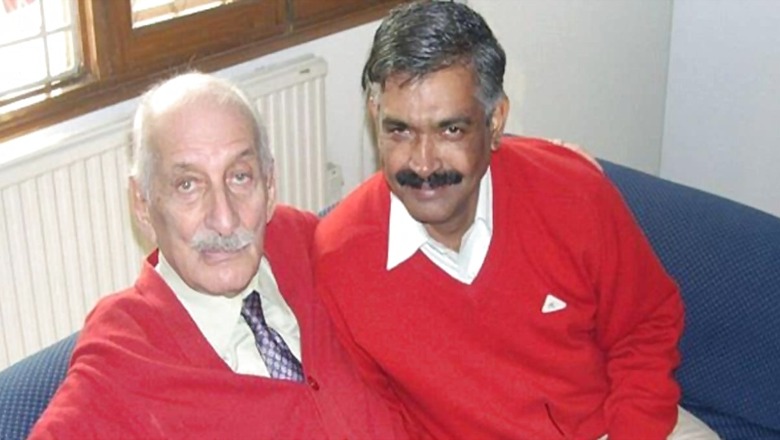
views
Field Marshal Manekshaw, the legendary Army Chief and the Chief Architect of the victory in 1971 Indo-Pak War, was born in Amritsar to Parsi parents on April 3, 1914. As we celebrate his 109th birth anniversary, the grateful nation salutes him for his exceptional contribution as a military leader while he commanded one of the finest armies in the world.
Young Manekshaw had all the makings of a leader. As a child, he was exceptionally good at mathematics and English, standing first in the Senior Cambridge examination in the entire United Punjab Province. His ambition then was to become a gynaecologist, which was thwarted by his doctor father who had earlier served in the British Army and had a medical practice at Amritsar.
Manekshaw, who was in teens then, rebelled against his father and opted for a military career, joining the Indian Military Academy at Dehradun, where his outspoken nature and friendly attitude became the talk of the town. He expressed his views boldly, yet remained a darling of his friends and superiors. After his memorable stint at this prestigious Military Academy, he was among the first few to get the King’s commission in the British Army that had a few Indian Officers and his British Instructor there never ever imagined that one day, this gentleman cadet would send chills to the spine of the foe and teach the aggressor the lesson of a lifetime.
The 1971 war under General Manekshaw’s military leadership was one of its kind for the Indian subcontinent, to gain control of territories outside the nation’s boundaries and carve out a new nation out of a hostile and brutal neighbour. The war happened at a time when India had faced a monumental loss of her territories to Chinese aggression and the 1962 military debacle due to political blunder of Himalayan proportions was haunting the psyche of every Indian. Interestingly, Pakistan’s then President General Yahya Khan was his colleague during their stint as staff officers of Field Marshal Sir Claude Auchinleck and at the time of Partition, Manekshaw had given his red James Motor Cycle to Khan who wanted to possess this unique two-wheeler at any cost. He had promised Sam that he would pay Rs 1,000 once he was in Pakistan. Khan thought he was smart and had outwitted his friend. Yes, Khan got the bike, but he did not have the courtesy to repay the promised sum to Sam. Destiny has its own way and Pakistan under Khan, the brutal military dictator, was dismantled by his friend, who got more than what he ever imagined for his famous bike — a truncated Pakistan and nearly 93,000 prisoners of war.
The refugee crisis was mounting and lakhs of hapless citizens of erstwhile East Pakistan started pouring into eastern India. It was the worst humanitarian crisis ever witnessed by Independent India. Then Prime Minister Indira Gandhi had no other option but to wage a war against Pakistan to prevent the relentless influx of refugees. It was the most difficult time for India and prevailing conditions then were not conducive for an all-out war. Then Army Chief SHFJ Manekshaw did not buckle under pressure. The General took a firm stand against the wishes of the most powerful woman Prime Minister, reassuring her that Indian Army under his guidance would strike a lethal blow to Pakistan at an appropriate time of his choosing, ensuring 200% victory against the brutal oppressor with no ifs and buts.
In all his humility and grace, with due respect to his Prime Minister, he stood his ground like a rock and was ready to sacrifice his illustrious career for it. True to his words, he did it in style and the historic war lasted less than two weeks, bringing Pakistan to its knees and reinforcing the much needed-confidence of India in her military abilities.
The 1971 victory against Pakistan was exceptional, which could only be achieved despite many odds by an exceptionally outstanding General known for his straight talk and no nonsensical approach. Notwithstanding the US pressure and India’s lack of advanced weaponry, a theocratic and autocratic Pakistan was shown the door when mighty world powers remained silent on the worst atrocities perpetuated on the humanity under General Niazi, the butcher of East Bengal.
Manekshaw was a ‘Soldiers’ General’ and a darling of the troops. During his illustrious career spanning over four decades in uniform, he remained compassionate and never harmed his subordinates. He used to proudly say that he has not punished anyone, even those who have been recommended for stringent punishment by senior Commanders. His critics questioned his approach, but his subordinates knew very well that Manekshaw could never be vindictive, sacrificing a lamb for his glory. For them, he was a real tiger who fought with his might to protect his tribe. This conspicuous attribute of his personality along with his razor sharp intellect made him a “super General” and an exceptional military leader who got the best from his troops.
Contrary to easygoing exteriors, Manekshaw was a thoroughbred professional and a perfectionist. He had profound knowledge and human understanding, with capacity for hard work. He told me once: “Doctor, luck plays an important role and there is a thin line that differentiates between being court-martialed or becoming a Field Marshal.”
He would have gone home as a Major, yet became a Field Marshal by his deeds, although he attributed all his success to his luck. As a young Major, while he was posted in Burma during the Second World War, he was battling for his life with seven bullets to his body. The grievous battle injuries failed to dampen his spirits. After recovery, he went back to the battlefield with renewed energy and enthusiasm. It is obvious that luck favors the brave and for Sam, who was always on the firing line with perilous risks in the offing, luck had no choice but to favor the most valiant one in both letter and spirit. After his retirement from service, he never aspired to occupy a high office. He kept away from politics and settled for a peaceful and contented life in distant Coonoor, far away from Lutyen’s Delhi where he was entitled to a bungalow. He was denied his pension and other perks and privileges. Thanks to the personal intervention of the late President Abdul Kalam, he got his pension, but it was too late.
I consider myself extremely fortunate to be associated with such an illustrious man. It is his illness that brought me closer to him and his trust in my abilities that made this association eternal. He had an aura and charm. He was compassionate and kind with innate ability to give his best and get the best out of others. I had a great sense of happiness in looking after him and feel distinctly lucky that I could treat him till the very end. When he died, I was with him holding his hand, along with his daughters Mrs Maya Dharuwala and Mrs Sherry Baltiwala. In both life and death, he has become immortal.
Late Field Marshal Sam Manekshaw deserved much more than what he got from the nation. He was India’s pride and a rare jewel who should have been honoured with the Bharat Ratna during his lifetime. It is not too late and there is no opportune moment than now as we celebrate the 75th anniversary of India’s Independence.
Retired Lt Gen BNBM Prasad, SM, VSM Physician to Late Field Marshal Manekshaw & Former Director General Hospital Services Indian Armed Forces. Views expressed are personal and do not represent the stand of this publication.
Read all the Latest Opinions here










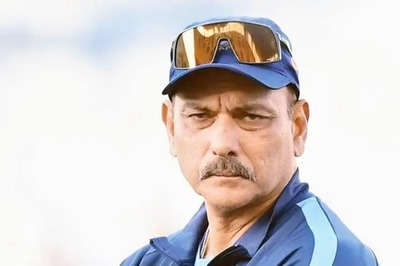



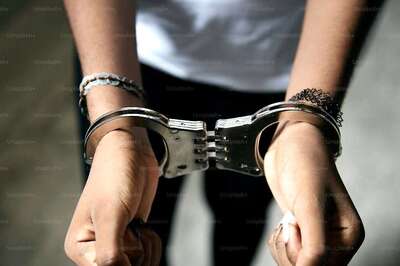
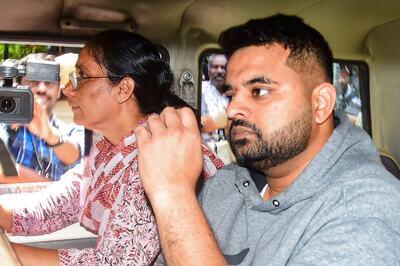

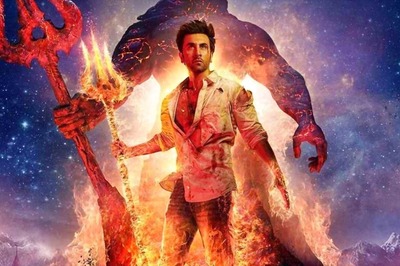

Comments
0 comment